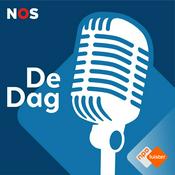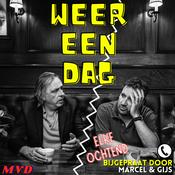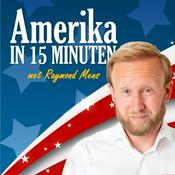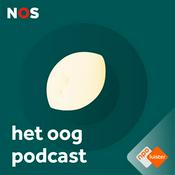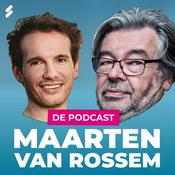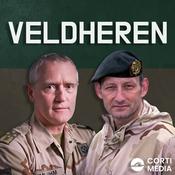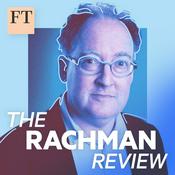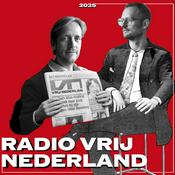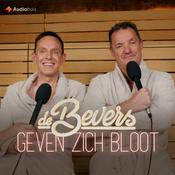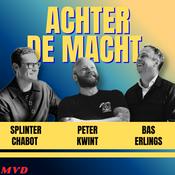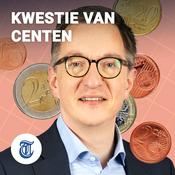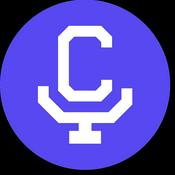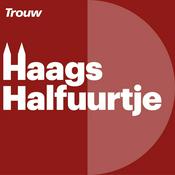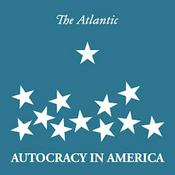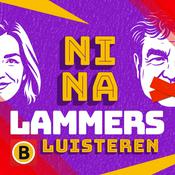254 afleveringen
Fugaku Meets Heron: How Japan's Quantum-Classical Supercomputer Fusion Cracked Chemistry's Hardest Problems
20-2-2026 | 3 Min.This is your Quantum Computing 101 podcast.
Imagine this: just two days ago, on February 18, 2026, RIKEN and IBM flipped the switch on a quantum revolution right here in Japan. Their pre-exascale supercomputer Fugaku—158,976 chips humming like a colossal beehive—locked into a closed-loop dance with RIKEN's on-premises IBM Quantum Heron processor. I felt the chill of that cryogenic chamber in my bones as I read the details, the air thick with liquid helium's faint metallic tang, qubits shivering at millikelvin temps while Fugaku's fans roared outside.
I'm Leo, your Learning Enhanced Operator, and today on Quantum Computing 101, we're diving into the hottest hybrid quantum-classical breakthrough: this quantum-centric supercomputing milestone. Picture it—Fugaku, once the world's fastest classical beast from 2020 to 2021, now passing data back and forth with Heron in an unbroken workflow. No more sequential handoffs like clumsy relay runners; this is seamless orchestration, a symphony where classical muscle meets quantum magic.
At the heart? Sample-based quantum diagonalization, or SQD. Quantum chemistry screams for it—modeling iron-sulfur molecules, those tricky clusters powering enzymes in our cells. The electron configuration space explodes exponentially with size, a vast cosmic labyrinth no classical computer can fully map. Enter Heron: its qubits sample that labyrinth like ghostly scouts, pinpointing high-promise regions with superposition's eerie parallelism—every possibility whispering at once, entangled in a fragile haze of probability. Fugaku grabs those leads, crunches the numbers with brute-force precision, refines parameters, and fires them back. Iterative, adaptive, closed-loop. The result? Unprecedented accuracy on molecules beyond exact classical reach, rivaling top approximations. IBM's Jay Gambetta showcased it at Supercomputing Asia 2026, and RIKEN's Mitsuhisa Sato calls it exhilarating for hybrid computing.
This hybrid marries the best of both worlds. Classical HPC like Fugaku handles vast data floods and optimization loops—reliable, scalable, room-temperature workhorses. Quantum unlocks the intractable: exponential speedups via entanglement and interference, like turning a key in a lock only superposition can reach. Their new task assignment system keeps both humming at peak, slashing time-to-solution. It's no metaphor; it's like global markets today—quantum scouts volatile edges while classical systems stabilize trades in real-time loops. Quantum advantage glimmers on the horizon, especially with GPUs next, as Tomonori Shirakawa predicts.
We've cracked the orchestration code at exascale. This isn't hype; it's the blueprint for tomorrow's simulations—drugs, materials, climate models.
Thanks for joining me on Quantum Computing 101. Got questions or topic ideas? Email [email protected]. Subscribe now, and remember, this has been a Quiet Please Production—for more, visit quietplease.ai. Stay quantum-curious!
For more http://www.quietplease.ai
Get the best deals https://amzn.to/3ODvOta
This content was created in partnership and with the help of Artificial Intelligence AIEuro-Q-Exa Unveiled: How 54 Qubits Just Merged With Classical Supercomputing to Crack Real World Problems
18-2-2026 | 3 Min.This is your Quantum Computing 101 podcast.
Imagine this: just two days ago, on February 16, 2026, researchers at Spain's CSIC and Delft University of Technology cracked the code on reading Majorana qubits—those elusive, noise-resistant topological wonders that store quantum info across paired zero modes, like secrets whispered between distant lovers, unbreakable by local eavesdroppers. I'm Leo, your Learning Enhanced Operator, and from the humming chill of my lab at Inception Point, where dilution fridges whisper at 10 millikelvin and superconducting coils pulse like a heartbeat, this breakthrough electrifies me. It's the hook pulling us into today's most tantalizing quantum-classical hybrid: Euro-Q-Exa, unveiled last week at Germany's Leibniz Supercomputing Centre by EuroHPC.
Picture it—54 superconducting qubits from IQM's Radiance platform, nestled tight into LRZ's massive classical supercomputer beast. Not some isolated quantum island, but a seamless co-processor, where classical CPUs crunch the heavy data orchestration via Slurm schedulers, feeding optimized kernels to the quantum heart. This hybrid marries the best of both worlds: classical reliability for vast datasets and precise control, quantum's superposition and entanglement for exponential leaps in tough nuts like climate modeling or drug discovery. Qubits dance in superposition—each existing in myriad states at once, like a chef juggling infinite recipes—while entanglement links them, coordinating outcomes faster than light's shadow. Interference then amplifies the right paths, canceling errors like waves clashing in perfect destructive harmony.
I see parallels everywhere. Just as Majorana's global quantum capacitance probe—measuring parity jumps with millisecond coherence—reveals hidden states without pinpoint disruption, Euro-Q-Exa decomposes database queries or molecular sims. Classical systems handle scalability and real-time tweaks, per that arXiv vision from Hanwen Liu's team on quantum-augmented optimizers, slashing join-ordering times by 14x over pure classical. Quantum tackles the exponential core, like VQE approximating ground states for pharmacology that classical supercomputers choke on. Sensory thrill? Feel the cryogenic bite on your skin, hear the faint JTWPAs amplify qubit readouts with slashed noise from RIKEN's latest, smell the faint ozone of high-vacuum seals. It's dramatic: qubits fragile as frost yet poised to shatter classical limits, optimizing portfolios 15% better as Canadian startups proved last year.
This arc bends toward utility—Europe's retaining IP, building local expertise, upgrading to 150 qubits by year's end. Hybrid isn't hype; it's here, accelerating from experiment to industry.
Thanks for tuning into Quantum Computing 101, folks. Questions or topic ideas? Email [email protected]. Subscribe now, and remember, this is a Quiet Please Production—visit quietplease.ai for more. Stay quantum-curious!
(Word count: 428; Char count: 3387)
For more http://www.quietplease.ai
Get the best deals https://amzn.to/3ODvOta
This content was created in partnership and with the help of Artificial Intelligence AIQuantum Hybrids Crack the Code: How IBM's QeMCMC Solves Problems Classical Computers Can't Touch
16-2-2026 | 3 Min.This is your Quantum Computing 101 podcast.
Imagine this: just days ago, on February 11, 2026, researchers at QuTech in Delft and CSIC in Spain cracked the readout code for Majorana qubits in a Nature paper, sensing parity in a minimal Kitaev chain with quantum capacitance—like eavesdropping on whispers from topological shadows without disturbing their dance. But today's real fireworks? A quantum-classical hybrid powerhouse from IBM Quantum and The Hartree Centre, unveiled in Quantum Zeitgeist, tackling combinatorial optimization via quantum-enhanced Markov chain Monte Carlo, or QeMCMC. I'm Leo, your Learning Enhanced Operator, and this is Quantum Computing 101—where bits entangle with reality.
Picture me in the humming cryostat vault at IBM's Yorktown Heights lab, the air thick with liquid helium's chill bite, superconducting qubits pulsing like fireflies in a frostbitten night. I've spent years coaxing these fragile beasts, but this hybrid? It's poetry in superposition. Classical computers choke on problems like Maximum Independent Set—MIS—where you pick the biggest non-adjacent node cluster in a graph, vital for financial portfolios or protein folding in molecular biology. Enter QeMCMC: quantum processors sample vast solution spaces with exponential speedup, their entangled states exploring parallel realities classical bits can only dream of.
Kate V. Marshall, Daniel J. Egger, and Michael Garn's team mapped 117 decision variables to 117 qubits on real hardware. They warm-started the Markov chain with a solid classical guess—think seeding a storm cloud—then unleashed parallel tempering, running multiple chains at varied "temperatures" to leap local optima traps. Quantum sampling dives deeper, faster; for that massive 117-variable MIS, it converged in fewer iterations than classical MCMC sims. Why? Classical tensor networks hit truncation errors worse than qubit noise at scale—quantum's edge emerging like dawn through fog.
This hybrid marries classical reliability—error correction, optimization guidance—with quantum's wild superposition and interference, metaphors for our chaotic world. Just as EU reports from the European Parliament highlight hybrids optimizing wind-farm layouts or EV charging with Pasqal and EDF, this MIS solver hints at greener grids, slashing waste in renewable integration. Feel the drama: qubits tunnel through energy barriers, collapsing wavefunctions into perfect solutions, while classical overseers temper the frenzy.
We've bridged the chasm, folks—near-term quantum utility, not fairy tales. Quantum doesn't replace classical; it amplifies it, like a conductor wielding an orchestra of entangled symphonies.
Thanks for tuning in, listeners. Got questions or topic ideas? Email [email protected]. Subscribe to Quantum Computing 101, and remember, this has been a Quiet Please Production—for more, check quietplease.ai. Stay entangled.
For more http://www.quietplease.ai
Get the best deals https://amzn.to/3ODvOta
This content was created in partnership and with the help of Artificial Intelligence AIQuantum Goes Sovereign: How Hybrid SuperQ Hubs and Majorana Qubits Are Cracking the Code in 2026
15-2-2026 | 3 Min.This is your Quantum Computing 101 podcast.
Imagine this: just days ago, on February 11, 2026, researchers at QuTech in Delft unveiled single-shot parity readout for Majorana qubits in Nature—a breakthrough that cracks open the safe of topological quantum protection, like finally picking the lock on a vault that's been taunting us for years. I'm Leo, your Learning Enhanced Operator, diving into the quantum frontier on Quantum Computing 101.
But today's pulse-pounder? SuperQ Quantum's launch of their Sovereign Hybrid Infrastructure, the most intriguing quantum-classical hybrid solution hitting the wires. Picture me in the humming chill of a Munich data center, the air thick with cryogenic mist and the faint ozone whiff of superconducting circuits. SuperQ, fresh off CES acclaim for ChatQLM on CNBC, deploys localized Super Hub nodes—decentralized beasts blending quantum annealing and gate-based qubits with classical HPC muscle. Sensitive data for defense, finance, energy? It never leaves your jurisdiction. No "Harvest Now, Decrypt Later" nightmares; air-gapped, sovereign control.
This hybrid wizardry marries quantum's probabilistic fireworks—superposition exploding like a fireworks storm over the Alps, entanglement weaving distant qubits in ghostly dances—to classical reliability. Classical handles orchestration, error mitigation, massive datasets; quantum tackles the impossible, like optimizing molecular simulations that would choke a supercomputer. Think IQM's Euro-Q-Exa at Germany's LRZ: 54 superconducting qubits embedded in HPC for climate modeling and drug discovery, scaling to 150 by year's end. Or IBM's Qiskit Functions, where Qubit Pharmaceuticals just ran drug hydration predictions on 123 qubits and 2,000 gates—classical inputs morph into quantum circuits, spitting out results matching classical precision, no PhD required.
Feel the drama: in a Kitaev chain, Majorana zero modes lurk at nanowire ends, charge-neutral phantoms defying local probes. QuTech's quantum capacitance—via RF resonator sensing Cooper pair flow—reads parity in one shot, coherence over a millisecond. It's Lego for fault-tolerance: stack chains for million-qubit dreams, Microsoft-style. Like a spy thriller, classical scouts the terrain, quantum infiltrates the shadows.
This hybrid era? It's quantum utility now—extending classical power without replacing it, fueling AI, cracking epidemics. We're not waiting for perfection; we're engineering the revolution.
Thanks for joining me, listeners. Questions or topic ideas? Email [email protected]. Subscribe to Quantum Computing 101, and this has been a Quiet Please Production—for more, check quietplease.ai. Stay entangled.
For more http://www.quietplease.ai
Get the best deals https://amzn.to/3ODvOta
This content was created in partnership and with the help of Artificial Intelligence AIQuantum Meets Classical: How QACG Framework Solves Impossible Problems Without Waiting for Perfect Qubits
13-2-2026 | 3 Min.This is your Quantum Computing 101 podcast.
Picture this: you're standing in a laboratory where quantum and classical computing shake hands like old rivals finally recognizing each other's worth. That's exactly what researchers just demonstrated, and it's changing everything we thought we knew about solving humanity's hardest problems.
I'm Leo, and welcome back to Quantum Computing 101. Today we're diving into something genuinely revolutionary that dropped just days ago.
For years, we've watched quantum computing promise the moon while classical computers quietly kept the lights on. The tension was real. Full quantum solutions demanded resources we simply don't have yet. Classical computers hit walls with massive problems. But what if neither had to go it alone?
Enter the quantum-accelerated conjugate gradient framework, or QACG. Imagine you're trying to solve an enormously complex equation, like predicting fluid dynamics in three dimensions. Traditionally, a classical solver would grind away, but it gets bogged down by low-energy spectral components that make convergence brutally slow. It's like pushing a boulder uphill while the weight keeps shifting.
Here's where quantum mechanics performs its magic. Researchers have figured out how to use a quantum algorithm to generate a spectrally informed initial guess for the classical solver. The quantum component doesn't try to solve the entire problem. Instead, it strategically suppresses those problematic low-energy components, giving the classical algorithm a massive head start. It's cooperation, not competition.
What makes this genuinely elegant is the controllable decomposition of computational effort. The quantum portion tackles the most agonizing aspects while classical processors handle the bulk of the work. We're talking about solving the three-dimensional Poisson equation, a problem that appears everywhere from physics to engineering, with fewer quantum resources than full quantum solvers would demand while still beating purely classical methods.
The researchers achieved logical error rates of 2.914 percent per cycle within their framework, working with a partially fault-tolerant system based on the STAR architecture. They modeled this on contemporary HPC platforms, making it practically implementable right now.
This represents more than incremental progress. It's a fundamental shift in how we approach quantum computing. Rather than waiting for massive, expensive quantum computers to replace classical systems, we're embedding quantum devices as accelerators within existing supercomputing workflows. It's pragmatic. It's scalable. It works.
European researchers are already leveraging this approach through the Euro-Q-Exa system installed in Germany, developing hybrid quantum-HPC applications for neurodegenerative disease research and climate modeling. The future isn't quantum replacing classical. It's quantum amplifying classical computing's strengths.
Thank you for joining me on Quantum Computing 101. If you have questions or topics you'd like discussed, email leo at inceptionpoint dot ai. Subscribe to Quantum Computing 101, and remember, this has been a Quiet Please Production. For more information, visit quiet please dot AI.
For more http://www.quietplease.ai
Get the best deals https://amzn.to/3ODvOta
This content was created in partnership and with the help of Artificial Intelligence AI
Meer Nieuws podcasts
Trending Nieuws -podcasts
Over Quantum Computing 101
This is your Quantum Computing 101 podcast.Quantum Computing 101 is your daily dose of the latest breakthroughs in the fascinating world of quantum research. This podcast dives deep into fundamental quantum computing concepts, comparing classical and quantum approaches to solve complex problems. Each episode offers clear explanations of key topics such as qubits, superposition, and entanglement, all tied to current events making headlines. Whether you're a seasoned enthusiast or new to the field, Quantum Computing 101 keeps you informed and engaged with the rapidly evolving quantum landscape. Tune in daily to stay at the forefront of quantum innovation!For more info go to https://www.quietplease.aiCheck out these deals https://amzn.to/48MZPjs
Podcast websiteLuister naar Quantum Computing 101, De Dag en vele andere podcasts van over de hele wereld met de radio.net-app

Ontvang de gratis radio.net app
- Zenders en podcasts om te bookmarken
- Streamen via Wi-Fi of Bluetooth
- Ondersteunt Carplay & Android Auto
- Veel andere app-functies
Ontvang de gratis radio.net app
- Zenders en podcasts om te bookmarken
- Streamen via Wi-Fi of Bluetooth
- Ondersteunt Carplay & Android Auto
- Veel andere app-functies


Quantum Computing 101
Scan de code,
download de app,
luisteren.
download de app,
luisteren.


